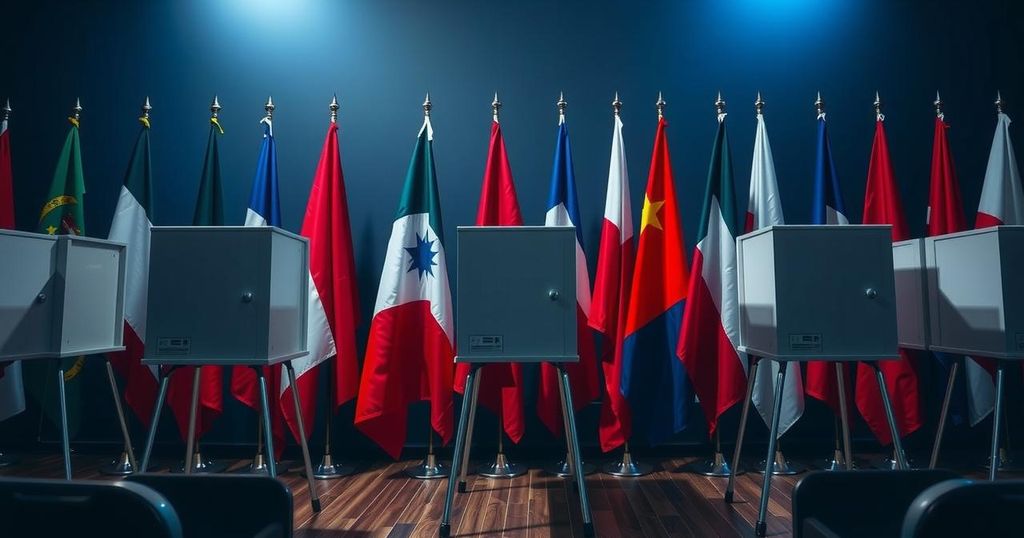Uruguay’s Broad Front Regains Power Amidst Political Challenges in Latin America

This article discusses the recent political developments in Latin America, focusing on the Broad Front’s victory in Uruguay’s election, led by Yamandú Orsi, who defeated conservative Álvaro Delgado in a closely contested runoff. The situation illustrates the need for progressive movements to address rural voter discontent while navigating the complexities of global right-wing ascensions.
Hello, and welcome to Latin America Weekly. This edition discusses significant political developments in the region, including the notable victory of the progressive Broad Front in Uruguay’s presidential elections, where candidate Yamandú Orsi defeated conservative Álvaro Delgado in a close runoff of 52 to 48 percent. This election marks a significant shift as Orsi successfully overcame the advantageous position of outgoing President Luis Lacalle Pou, whose popularity remains high. Moreover, the implications of this electoral outcome may influence leftist coalitions globally amid rising right-wing movements, particularly in urban-rural divides.
The Broad Front’s successful strategy echoes its previous dominance between 2004 and 2019, yet last elections revealed the pressing challenge of rural support, which they had lost in prior contests. By addressing these divisions, Orsi’s leadership signals an adaptation of the party’s approach to regain its influence, potentially serving as a model for other leftist groups facing similar political conditions internationally.
In summary, this week’s highlights cover the Broad Front’s election in Uruguay, allegations against Chile’s President Gabriel Boric, and Brazil’s leading position in South American football. Such events shape the contemporary political landscape of Latin America, suggesting possible shifts in alliances and governance as nations navigate these complexities.
The recent elections in Uruguay signify a pivotal return of the Broad Front, a progressive coalition that previously governed the country for 15 years. Following the successful election of Yamandú Orsi, the challenges of addressing rural disenchantment become central to his administration’s agenda. Uruguay’s political context is characterized by the influence of outgoing president Luis Lacalle Pou, whose positive approval ratings pose additional ramifications for future electoral strategies among leftist parties. Globally, the rise of right-wing politics compels a reassessment of outreach strategies aimed at reconciling urban and rural voter base divisions.
In conclusion, the recent electoral victory of Yamandú Orsi in Uruguay underscores the potential for progressive coalitions to reclaim political power amidst rising right-wing sentiments. The Broad Front’s strategy to reconnect with rural voters offers a valuable lesson for other left-leaning movements around the world. As these dynamics develop, the focus on governance and coalition-building will be critical for the sustainability of progressive policies in the region.
Original Source: brazilian.report







